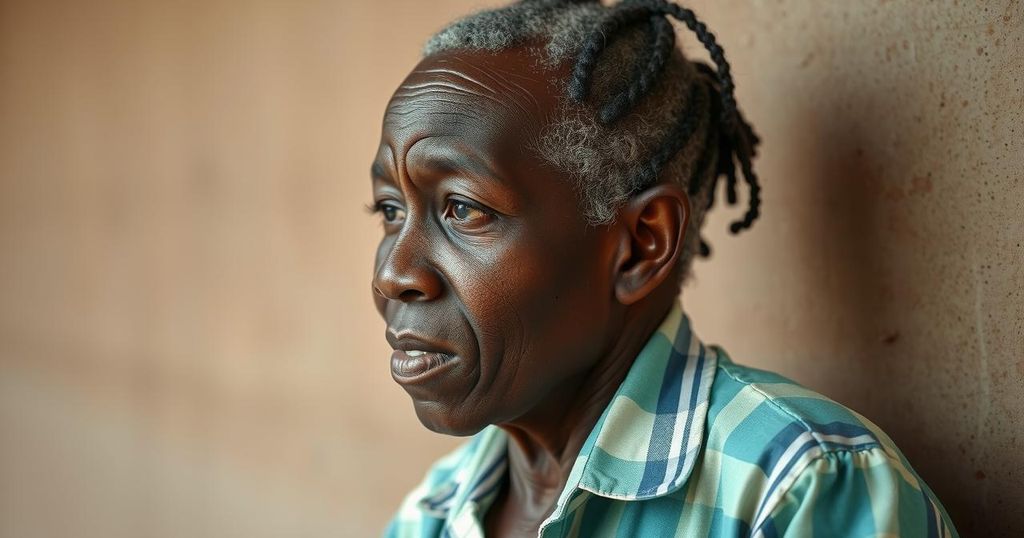Mental Health Crisis in Congo: A Dire Situation Amidst Ongoing Conflict

Eastern Congo is facing a critical mental health crisis fueled by years of conflict and displacement, with significant rises in suicidal thoughts and demand for psychological support. Amidst worsening conditions, fewer than 30% of needed humanitarian funds for mental health have been met, highlighting the urgent need for comprehensive support services.
GOMA, Congo (AP) — The escalating violence in eastern Congo has precipitated a severe mental health crisis, exacerbating the suffering of displaced individuals. Nelly Shukuru, a 51-year-old mother of six, contemplated suicide amidst the despair inflicted by conflict-related displacement. Reports indicate a staggering increase in individuals seeking psychosocial support, with those receiving assistance around Goma rising by over 200% within six months. The number of individuals expressing suicidal thoughts has surged, reflecting the profound psychological toll of ongoing strife.
The humanitarian landscape in Congo is dire, with over 100 armed groups competing for control, particularly in regions rich in minerals. The resurgence of the M23 rebel group has intensified violence, displacing millions and leading to significant increases in mental health issues, such as anxiety, depression, and post-traumatic stress disorder. Despite the evident need for mental health services, funding remains critically low, with less than 30% of the $180 million requested being met.
Shukuru’s experiences are emblematic of the trauma pervasive in displacement camps, which are often located perilously close to conflict zones. The hazards include not only the constant strain of violence but also the risk of sexual assault. Survivors of such trauma face immense psychological challenges, further compounded by the scarcity of mental health support and pervasive stigma.
In response, some organizations are working to identify and support those in distress, promoting coping mechanisms to help individuals manage their psychological pain. Furthermore, initiatives aimed at assisting children affected by conflict are crucial, as many youths grapple with the loss of family and the threat of violence. The psychological ramifications of the conflict continue to unfold, highlighting an urgent need for comprehensive mental health interventions.
The ongoing conflict in eastern Congo has engendered a profound humanitarian crisis characterized by widespread displacement, violence, and mental health challenges. With over 100 armed groups operating in the region, including the resurgent M23 rebel group, millions have been forced from their homes, leading to unprecedented rates of mental health issues, including anxiety, depression, and suicidal ideation. The humanitarian response has been severely underfunded, which further exacerbates the mental health crisis as affected individuals struggle to access essential services.
In conclusion, the protracted conflict in eastern Congo has resulted in a significant mental health crisis, with skyrocketing rates of depressive symptoms, anxiety, and suicidal thoughts among the displaced population. Despite the urgent need for psychological support, available resources remain scant, and funding for mental health services is alarmingly low. As conditions persist, both immediate and long-term interventions are vital to address the psychological needs of those most affected by this enduring crisis.
Original Source: www.ap.org








